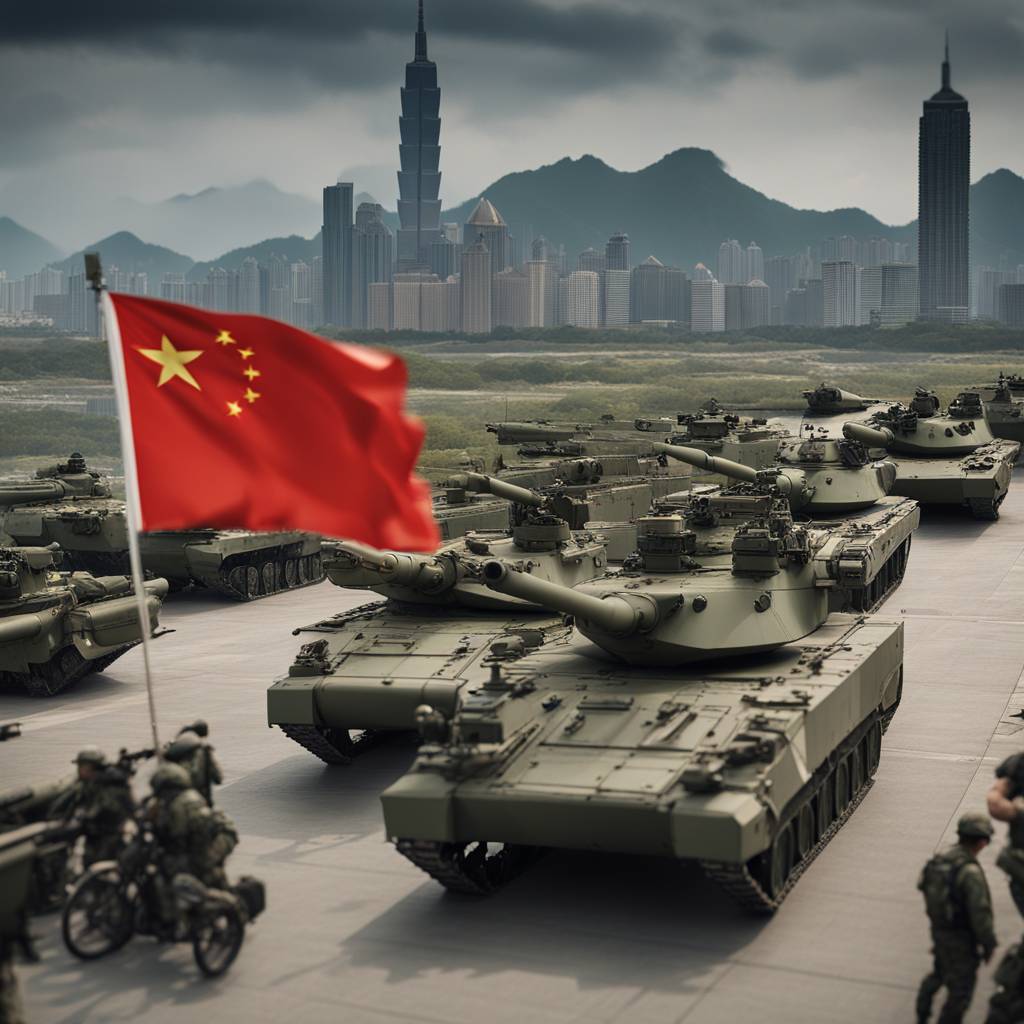China has responded to arms sales to Taiwan by the United States by banning senior executives from two US defense companies from entering the country and freezing their properties. The companies affected are General Atomics Aeronautical Systems, which manufactures unmanned aerial systems, and General Dynamics Land Systems, a military vehicle maker. China stated that the arms sales interfere with its internal affairs, damage its sovereignty and territorial integrity, and violate the one-China principle and provisions of US-China communiqués. The measures took effect immediately and include freezing the firms’ properties and banning their senior executives from entering China.
These actions come amidst ongoing tensions between the US, China, and Taiwan regarding arms sales and China’s sovereignty over Taiwan. China has long considered Taiwan a part of its territory and has opposed US arms sales to Taiwan. The recent bans on the senior executives of the US defense companies are seen as a direct response to the arms sales and a way for China to assert its opposition to these activities. The companies affected have not yet commented on the bans, and it is unclear how this move will impact their operations and relationships in China.
The ban on senior executives of the two US defense companies is just the latest development in the complex and contentious relationship between the US and China. The ongoing trade war, territorial disputes in the South China Sea, and human rights issues have strained relations between the two countries. The arms sales to Taiwan have added another dimension to this already tense relationship, and China’s response in banning senior executives reflects its firm stance on these issues. It remains to be seen how the US will respond to these bans and whether they will further escalate tensions between the two countries.
The ban on the senior executives of the US defense companies is likely to have significant implications for the companies involved. China is a key market for many US companies, and being banned from doing business there could impact their bottom line. In addition, being frozen out of a major international market could damage their reputation and relationships with other countries. The lack of response from the companies so far suggests that they are still evaluating the situation and considering their next steps. It remains to be seen how this ban will affect the companies’ operations and future business opportunities in China.
The ban on senior executives of the US defense companies by China underscores the complexities of doing business in a global marketplace. Companies must navigate not only the political sensitivities of different countries but also the potential repercussions of their actions on an international scale. The ban serves as a warning to other companies that conducting business in China comes with its own set of challenges and risks. It also highlights the importance of diplomacy and careful consideration when engaging in activities that could impact international relations and geopolitical dynamics.
In conclusion, China’s ban on senior executives of two US defense companies in response to arms sales to Taiwan is a significant development in the ongoing tensions between the US, China, and Taiwan. The ban reflects China’s firm stance on these issues and its willingness to take action to oppose activities that it sees as a threat to its sovereignty and territorial integrity. The implications of this ban on the companies involved remain to be seen, but it underscores the complexities and challenges of doing business in an increasingly interconnected world. Moving forward, it will be important for all parties involved to carefully consider the potential consequences of their actions on an international scale and work towards resolving differences through diplomatic channels.


